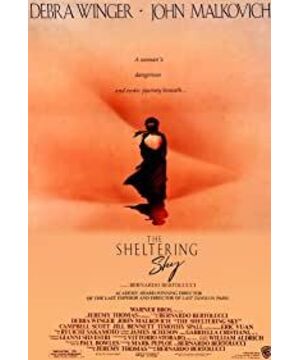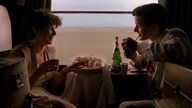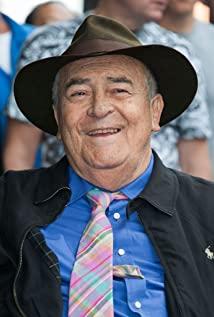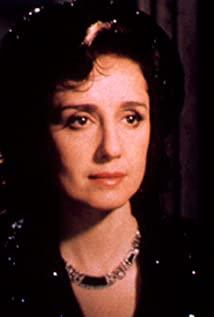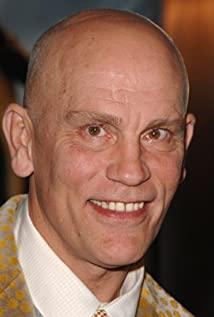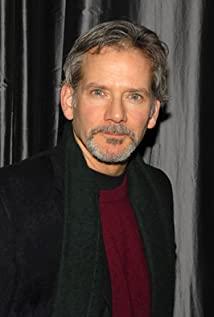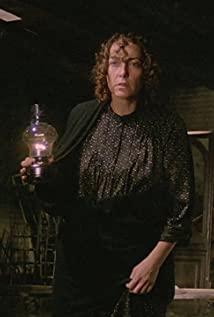shaded sky
Released in 1990, Bernardo Bertolucci's film Sheltered Sky is based on Paul Bowls' novel of the same name. The author of this book, Bowers, is an American expat existentialist who was born in 1910 into a middle-class family in Queens, New York, where his father was very strict with him during his childhood, prohibiting any entertainment and play. According to family legend, Bowers' father tried to freeze him to death by placing him on a balcony in a blizzard when he was born. Although it is now widely believed that this could not have happened, Bowers firmly believes that it happened and sums up his relationship with his father in this way. Powers was a member of philosophical and literary circles during the Nazi occupation of Paris during World War II, including Camus, Sartre, and others. He traveled alone to the Sahara Desert in Algeria in 1947 to write the novel, which was first published in the UK in September 1949.
The film is set in the Sahara desert far from modern civilization, through the journey of three Americans: Port and Kit, an artist couple married for ten years, and their businessman friend Tunner.
The movie begins by assigning different labels to the trio, Port, a traveler and an existentialist who may never go back. Kit, a confused half-traveler, half-tourist, she's erratic and doesn't know what she wants. And the tourist Tunner, who is very different from them, who represents modern universal values and witnesses the story from an outsider's perspective.
At the beginning of the story, the old man who was a guest star by the author Bowers described the port and kit as follows from the narrator's point of view:
00:08:02 -->00:08:19
"Because both Kit and Potter have never lived a normal life, they both made fatal mistakes-
Year after year it's no different to them and in the end what's supposed to happen has to happen"
That's one of the reasons Port and Kit are in existential crisis, and their fatal mistake: they ignore the passage of time, don't understand that time is finite, and they act like it doesn't matter. Time takes them through a series of events. Without their positive choices, these events have no meaning and their lives are unreal. In the ten years of their marriage, they failed to see the meaning of what they created together, which caused their lives to seem repetitive and empty.
Existentialism believes that the essence of existence is meaningless, and that people can make choices and create meaning through free will. Making choices and creating meaning is the only way to live a real life, and it is a human freedom and responsibility.
Port has the courage to make choices and dare to bear the price of freedom, but he denies the meaning of the past, and does not think that there is a connection between anything and the past. In the dialogue with the border agent at the beginning of the film, Port tells the border agent that Kit is a writer, that the Tunner is a businessman, and that he is "No Profession" and that he does not accept any definitions, when kit comes over to explain to the border agent that Port is a composer. smiled sarcastically. In his mind, of all things in the past, only his marriage with Kit and the music he created made sense. In a conversation with Tunner he stated, "My plan is no plan." He is an existential hero who recognizes and embraces random chance and actively makes his choices. However, because Port denies the meaning of the past, his life seems to be nothing but emptiness. However, it is precisely because of Port's lack of responsibility for the freedom he has created that Kit, as a "half traveler, half tourist" person, cannot bear the pain and anxiety this absurd life brings to her.
Compared to Port, Kit is not so committed to the nothingness of life, she can't be like Port who can embrace the absurd world alone even if she is alone. While she realizes the nothingness of the world, she also deeply fears the nothingness of the world. The meaninglessness of life is what she thinks is true and what she fears. She seemed to have her eyes half-open, not daring to accept the challenge. She avoids making choices, she thinks everything has a sign, and even runs away when Port talks about his dreams. Superstition, alcoholism, sex became her sanctuary. She tried to convince herself that nothing was important, to keep herself from realizing that she might want a more ordinary, stable life. Port and Kit's dialogue in the bedroom reflects this ambivalence:
00:12:44 --> 00:12:54
Port: -What do you mean you don't trust him? it must mean
Kit: - of course it means but it doesn't matter
After the two betray each other, they come to the hills to face the vast sky. This is also one of the most important scenes in the film: Panorama, the two walked from the left holding hands,
00:45:15 -->
Port: - you know? I really miss this situation and this scene... nothing in the world can be compared
Kit: - I know that
, the camera pans from left to right following the two of them, becoming a medium shot, with their backs as the foreground, and the vast earth and sky as the background. Kit released Port's hand.
Port: - this is where I'm taking you
Kit: - yes
Port walked forward alone to the edge of the cliff and looked back at Kit, forming a medium shot of Kit and a long shot of Port.
Port: - come on
As Kit walked towards Port, the two exchanged left and right. As the camera went up, the background music of Ryuichi Sakamoto's On the Hill sounded, forming a big panorama, revealing the vast land and sky gradually.
00:48:08 --> 00:48:25
Port:- Here... the sky is so weirdly thick and solid as if it's protecting us from what's behind it, look
Kit: - what's behind it?
Port: - nothing but night
Here the theme of the film reveals that ""covered sky"" refers to the Maya Veil. And behind the sky is the essence world of nothingness.
00:48:25 --> 00:49:14
Kit: - I wish I could be like you, but I can't
Port: - maybe we are afraid of the same thing
Kit: - no, we're not afraid of the same thing you don't need anything you don't need anyone you can live without me
Port: - For me, love is to love you. No matter what happens between us, I won't fall in love with anyone else
Maybe we are all afraid of loving too much
Here they don't realize what they are afraid of each other, for Port, he is afraid that his life will lose all meaning and be left with nothingness, and Kit is the meaning of his life (Port hadn't realized it yet) . And Kit was afraid of the nothingness behind the veiled sky.
With Port dying, their tragic relationship is finally revealed:
Port: Kit:
I think... I think there's no time please, please stay here
I didn't know you could be any better I'm so happy
I know I shouldn't be afraid I'm going crazy
But I'm really afraid that there are no ghosts around
Because sometimes I... I can't find anyone to talk to
I'm not here, I'm here, Port, I'm here
And over there... it's so far away I don't ask you to stay here
I'm alone, beg you to stay
You don't know that I'm not begging you to stay in this room
I don't think anyone can get there please, Port stay here stay with me
Do you know how scary that is? please don't go
You know, Kit.... all these years... please don't go, please...
I live for you
but i don't know
now I know
Yeah, I know
At the end of his life, Port finally understands that even though he is still alone, facing the world of nothingness and absurdity, Kit gives him meaning in his life, and he loves Kit deeply (the beginning of the movie is also the end of Port's life) ). And while Port was dying, Kit sobbed that she was glad Port was back. They didn't want to admit that this was their last parting. Her panic wasn't for Port: it was for herself. There was no one to talk to, only her. She thought she was going crazy. She doesn't think she can live without Port giving her a sense of reality. As she told the Tunner, she didn't believe she deserved to be alive or that she had everything she needed.
After Port's death, Kit's belief in her vulnerability to the world and her sense of self-identity all collapsed, and Port was her "covered sky". Port's death shattered Kit, and there was no shelter for him anymore. Kit faced the vast, meaningless existence behind the sky, the absurdity she couldn't handle. She put on Port's jacket, packed her notebook, closed the door, and walked away without looking back. In a daze, she accepted a random choice, she came to the tribe's team, and when she met the desert chief, she was mesmerized by his eyes, and after a few seconds of mourning, she was ready for the next relationship . She chose to reject rationality and embrace the absurd.
Kit came to his tribe with the chief, and she and the chief began to create meaning together. Kit cut out her notebook and hung it on the beam to decorate the room, with her graffiti large and small, and the words "AM I BLUE?" Here Kit is still deeply contradictory, she seems to be asking herself if she can find back to self-will. When she is discovered and expelled by the other wives of the chief, she is lost in the desert bazaar and instinctively trades her francs for food, which is all she has left, and where all her values are meaningless . The local people rejected her banknotes, people arrested her as a thief, she fell in despair, and her only remaining values were subverted and collapsed at this moment.
When Kit wakes up in the hospital with tattoos of the local prostitute symbol on his hands and feet, she is traumatized and unresponsive to everything around her. She was picked up by someone from the US embassy. When she learned that Tunner was waiting for her, she refused and left the taxi. She couldn't accept someone who couldn't understand her. sure. She wandered to the cafe where Port had been with, and she walked in and looked around in confusion. The author Bowers reappears, and he asks Kit, "Are you lost?" She smiles and answers "Yes". It was the place she was familiar with, and the place she expected. Lost and lonely is where she feels authentic to Bowers, the film's narrator and story's author, and we're all lost. It's just that only some of us know.
“Because we don't know when we will die, we get to think of life as an inexhaustible well. Yet everything happens only a certain number of times, and a very small number really. How many more times will you remember a certain afternoon of your childhood, an afternoon that is so deeply a part of your being that you can't even conceive of your life without it? Perhaps four, five times more, perhaps not even that. How many more times will you watch the full moon rise? Perhaps 20. And yet it all seems limitless.”
― Paul Bowles
View more about The Sheltering Sky reviews


